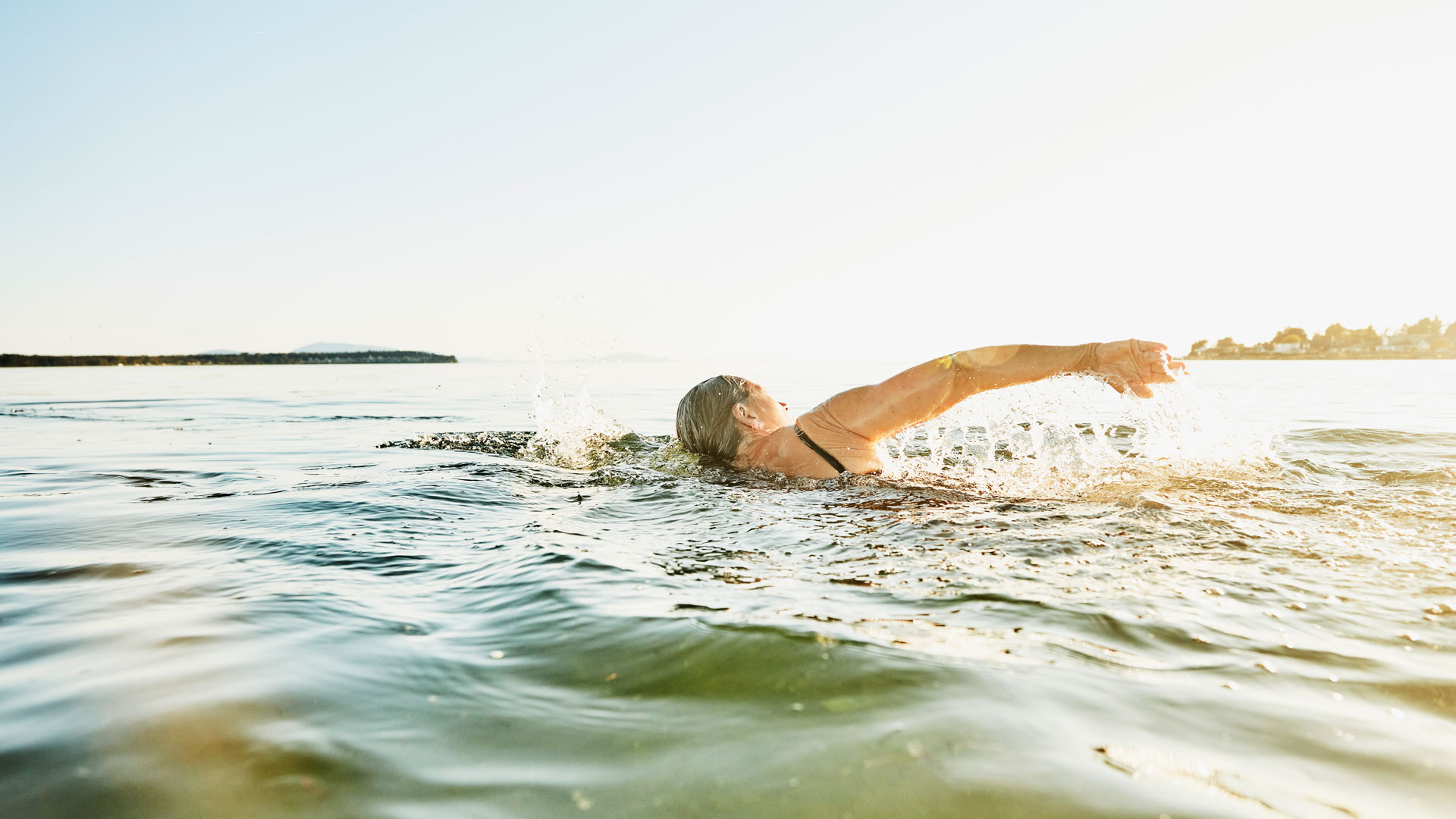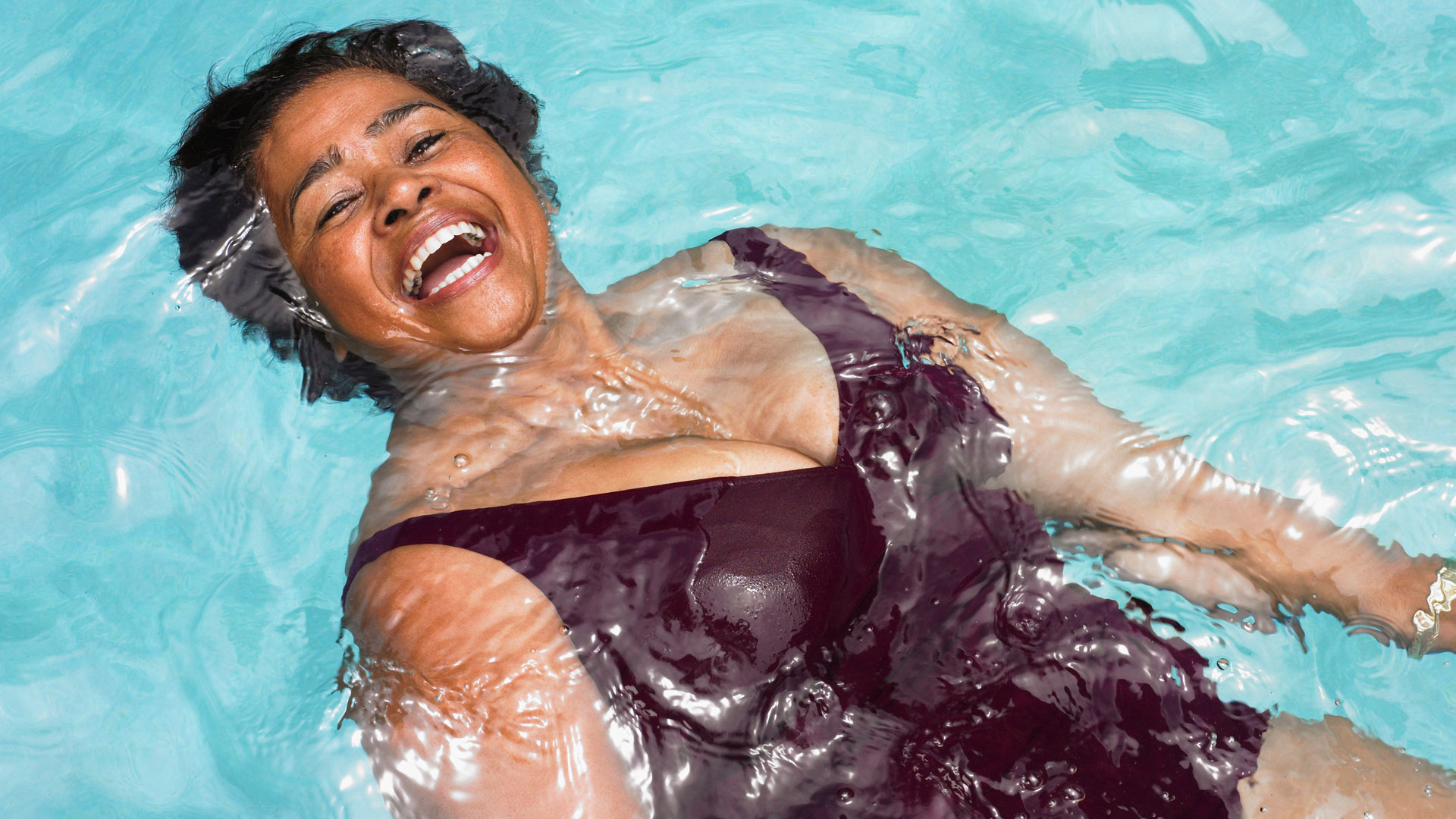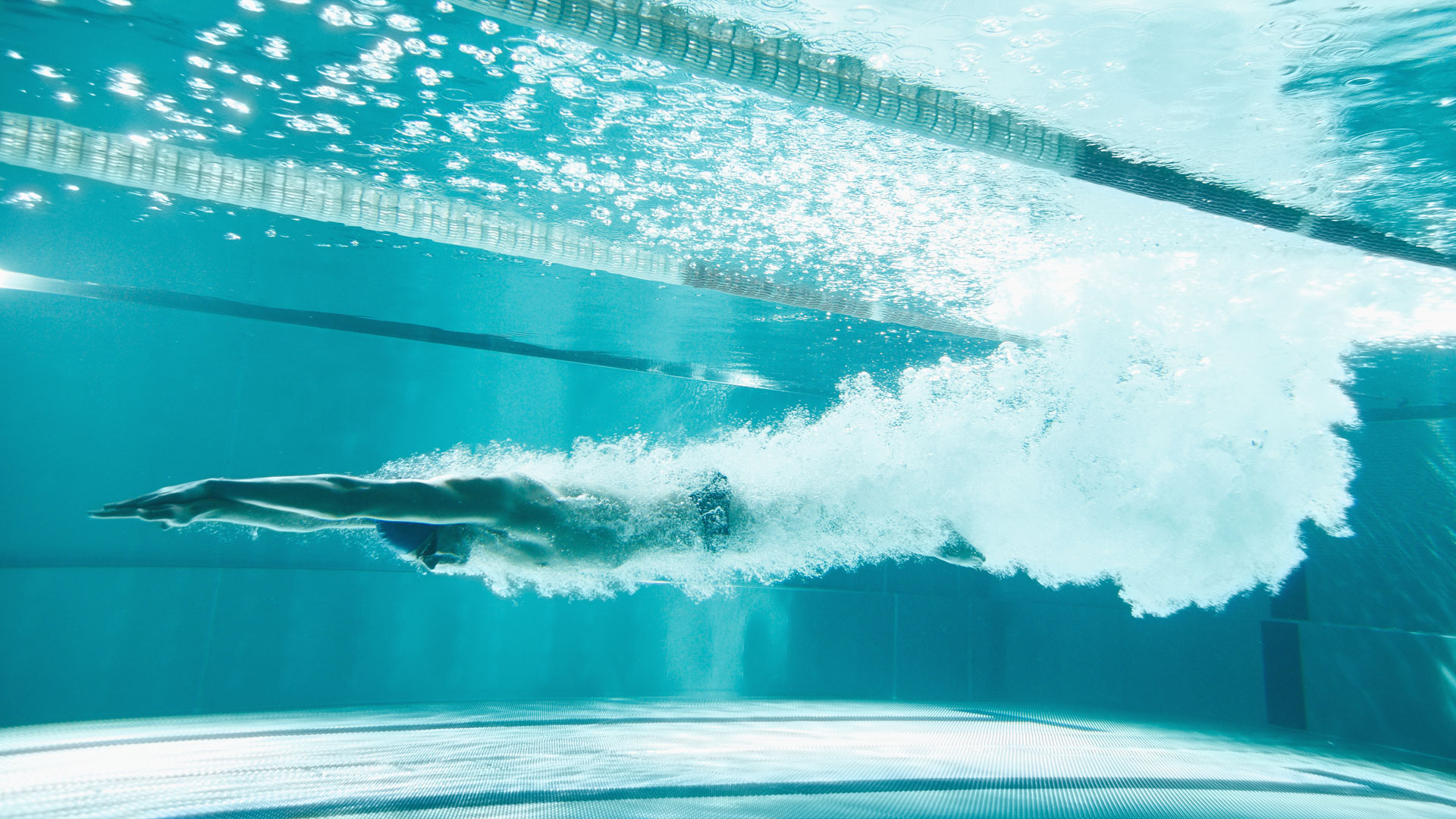What are the benefits of swimming?
We asked the experts; what are the benefits of swimming and what does it do to your body? Here’s what they said


Start your week with achievable workout ideas, health tips and wellbeing advice in your inbox.
You are now subscribed
Your newsletter sign-up was successful
Swimming has been around since prehistoric times, but what are the benefits of swimming? The good news is that swimming can of course be done inside in a swimming pool, but there are also lots of options for wild, river, and sea swimming that combine being outside with a great way to exercise.
The benefits of swimming are widely known. Some of the key benefits of swimming include building endurance, muscle strength, and cardiovascular fitness. Similar to the best exercise machines to lose weight, swimming is an effective full-body workout.
The five benefits of swimming
1. Full body workout: A key benefit of swimming is the positive impact it can have on the body. The NHS explains that regular swimming can help with weight loss, and improve flexibility and strength. Swimming is a low-impact sport, which means there is reduced strain on the joints in comparison to exercises like running.
2. An effective way to burn calories: According to Mayo Clinic, through swimming, a significant amount of calories can be burned in a short period of time. For example, a 160-pound person can burn approximately 423 calories an hour whilst swimming at a moderate pace. Let us compare this to another low-impact activity, such as walking. That same 160-pound person would burn around 314 calories walking at 3.5 miles per hour for 60 minutes. Of course, it’s worth bearing in mind that if you’re considering swimming for weight loss, you’ll need to make sure you’re in a calorie deficit to lose weight.
3. Improves organ health: Swimming is great for your heart and lungs. A 2016 study that looked at the effects of an eight-week swimming course on young overweight people, medical students found that swimming lowered the blood pressure of the sample group. Swimming also helps to control blood sugar levels.

4. Improves your mood: Swimming is a mood booster. According to a 2014 clinical trial, researchers found that regular aquatic exercise boosted the mood of their sample group of participants.
5. Improves sleep: There has been much research conducted that reveals swimming can positively impact your quality of sleep. In a 2010 study, a group of PhD researchers found that their participants, who were previously experiencing insomnia, reported a boost in sleep and general quality of life after engaging in regular aerobic exercise such as swimming.
Start your week with achievable workout ideas, health tips and wellbeing advice in your inbox.
Who is swimming suitable for?
Swimming is suitable for many people - from pregnant women to people suffering from physical injuries, asthma, and MS.
- Pregnant people: There are many benefits to swimming whilst pregnant. Swimming is an exercise that can be safely practiced throughout the entirety of a pregnancy. Swimming is one of the safest types of exercise during pregnancy, according to the American College of Obstetricians and Gynecologists.
A 2010 study conducted by researcher Mette Jul, revealed that pregnant women had no adverse reactions to swimming in chlorinated pools. It was found that women who swam during the early stages of pregnancy had a lower risk of congenital defects and preterm labor. Remember to consult a medical professional before starting new exercise routines during pregnancy, however, to mitigate against any complications. - Children: In many cultures and countries, people are taught to swim from a young age by family members and at school. In the US, however, swimming is not a mandatory part of the public school curriculum. Swimming is also seen as a key life skill and means of survival which is why it is commonly taught to babies and children. According to Baby Center, babies can start learning to swim from as young as six weeks. There are some private swimming lessons which start as early as four weeks.
- People with injuries: As swimming is a low-impact activity, it is more accessible than other forms of exercise. For this reason, it is a safe option for people suffering from injuries, arthritis, and disabilities. Swimming can actually reduce pain caused by injuries. A 2016 study from the Journal of Rheumatology analyzed a group of patients who had osteoarthritis. The study found that after taking part in activities such as cycling and swimming, the participants reported significantly less physical pain and joint stiffness.
- People with asthma: The humidity of indoor swimming pools is a good environment for people with asthma. A study by medical professional Cherri Rosimini found that swimming can decrease the severity of asthma symptoms in children.
- People with MS: People who live with multiple sclerosis (MS) may experience chronic pain and inflammation in their limbs. Swimming can ease the inflammation and make their limbs more buoyant. The water can support them through their exercise. This is known as water therapy or hydrotherapy. In a 2011 study, a group of researchers found that a 20-week hydrotherapy program resulted in a significant reduction of pain in the group of MS participants.

What are the downsides to swimming?
Swimming is a generally safe exercise. However, as with all forms of exercise, there are some risks to be aware of.
If you have particular medical conditions, a doctor should be consulted before starting a new workout. This is important for people with heart conditions or skin ailments such as psoriasis. Psoriasis can be aggravated by the chlorine in swimming pools.
Tips for safe swimming
- Consider taking swimming lessons if you are new to the exercise. This will mitigate drowning or other water-related injuries.
- Swim in areas like indoor swimming pools and roped-off bodies of water that are designated for swimming. This can help reduce the risk of drowning as these areas are normally supervised by a lifeguard.
- Remember to stay hydrated following a session of swimming. All exercises can lead to potential dehydration.
- Always supervise children who are swimming, to avoid the risk of drowning.
Looking for other ways to get active? Check out the benefits of squats.
Rachel Ayeh-Datey is a freelance writer and senior researcher in the advertising industry who is based in London in the United Kingdom. She covers a variety of subjects including music, LGBTQ+ issues and Black British history. Rachel is a fitness enthusiast with a passion for strength training and boxing and she’s covered topics such as yoga for Fit&Well’s sister site, Live Science. Rachel received a bachelor's degree in History from the University of Southampton in 2016.
